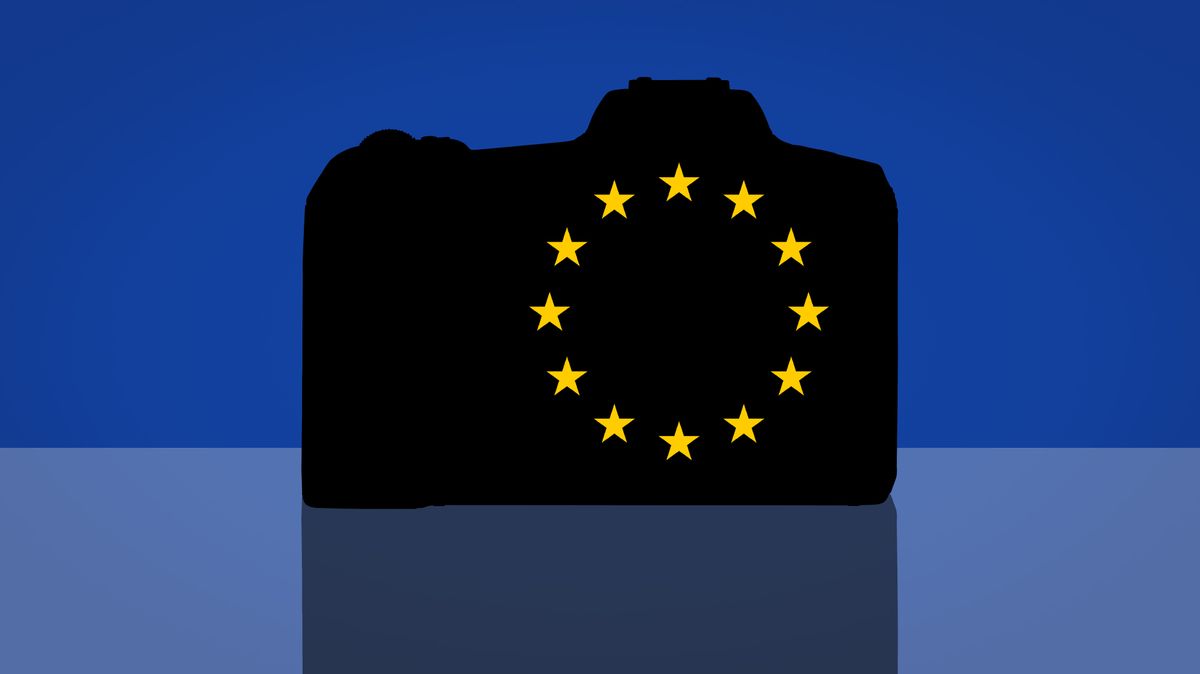A report is circulating online that new cameras launches from the world’s major manufacturers are being delayed by European red tape.
Camera rumors have been circulating for weeks and months that a slew of announcements were due in May – among them the Canon EOS R5 Mark II, Nikon Z6 III, Sony ZV-E10 II and Leica M12. However, compliance issues with European Union (EU) regulations may have caused these launches to be postponed.
“You probably have noticed that some companies like Sony, Canon, Nikon have not announced cameras in 2024,” wrote Sony Alpha Rumors, which originally reported the story. “A trusted source told me that companies have delayed some of their camera launches to make them compliant with new EU regulations.”
The idea of EU regulations interfering with product launches isn’t at all farfetched. It was well publicized, for instance, that the requirement for USB-C connectivity forced Apple to replace its proprietary Lightning port on the iPhone 15 series.
So what are the apparent regulatory holdups when it comes to these cameras?
Both Sony Alpha Rumors and outlets in Japan, such as Asobinet, have pointed towards the Artificial Intelligence Act (AI Act) that was adopted by the European Parliament in March of this year.
With cameras increasingly adopting and integrating AI technology, from existing deep learning AF algorithms trained from image data sets to the rumored advanced AI features in the R5 Mark II (and the teased predictive AF features in the Canon EOS R1), this could very well be a sticking point for Europe’s nascent legislation.
The best camera deals, reviews, product advice, and unmissable photography news, direct to your inbox!
Why is European legislation so important? I recommend reading the BBC’s story for a full picture, but the main takeaway is that the AI Act is “the world’s first comprehensive framework for constraining the risks of artificial intelligence (AI).”
How does it work? By “classifying products according to risk and adjusting scrutiny accordingly. The main idea of the law is to regulate AI based on its capacity to cause harm to society. The higher the risk, the stricter the rules.”
Here’s what might the crucial bit: “AI applications that pose a ‘clear risk to fundamental rights’ will be banned, for example some of those that involve the processing of biometric data.”
A key component of biometric data is facial recognition – something that is obviously linked to a key component of face detect and tracking autofocus. I’m just spitballing here but, if the AI Act is indeed what’s holding up these cameras, that feels a potential hurdle.
Whatever the issue, it’s nothing that lawyers and paperwork can’t solve – and word on the grapevine is that Sony and Leica’s cameras will only be delayed until June. Still, it’s very strange for none of the big three brands to launch a camera for half a year. Fingers crossed there aren’t any other hold-ups…
Don’t want to wait? These are the best Canon cameras, the best Nikon cameras and the best Sony cameras and the best Leica cameras available right now.









